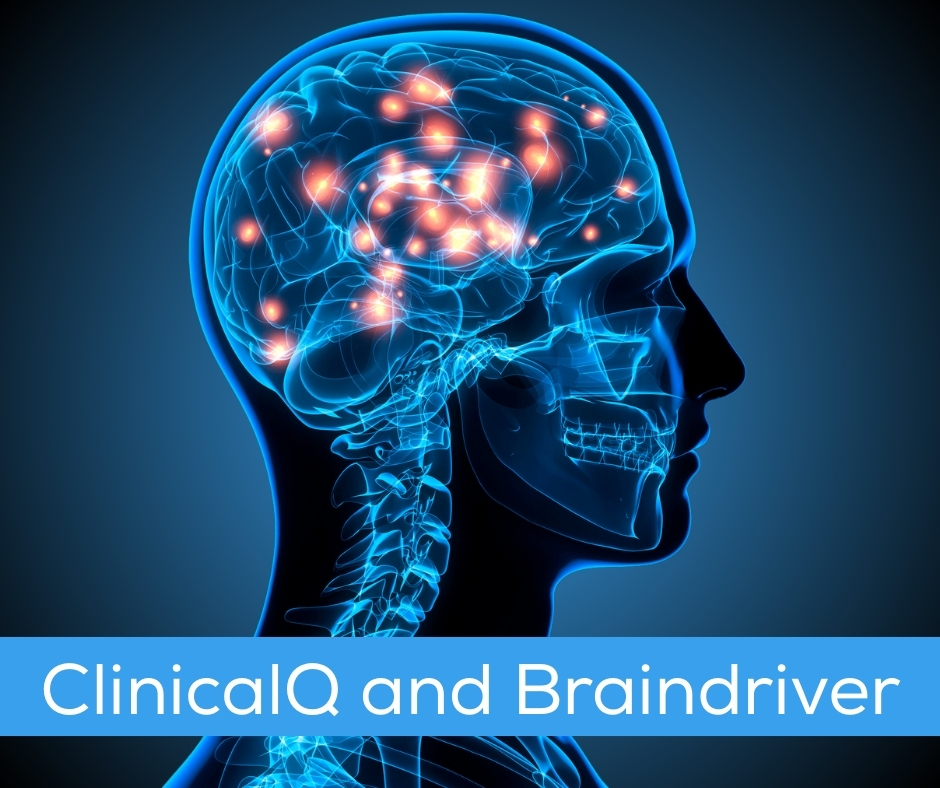ClinicalQ & Braindriver
A Cost-Effective Alternative to Full QEEG Analysis
5 minutes | 5 sites | free reports
Based on the methods pioneered by Dr. Paul G. Swingle, and further developed in collaboration with Dr. Mari Swingle, the ClinicalQ™ Assessment examines brain activity at five major sites as a basis for identifying dysfunction and determining training plans quickly and efficiently.
The ClinicalQ™ EEG Assessment
The ClinicalQ™ Assessment, is a remarkably simple and effective intake method that examines brain activity at 5 major sites as a basis for identifying dysfunction and determining training plans quickly and efficiently. The database used for the ClinicalQ™ assessment is comprised of over 1500 client records from Dr. Swingle’s practice. Using a clinical vs normative database avoids diagnostic labels and categorizing but focuses rather on the behavioral manifestations of the inefficiencies found in brain activity.
Braindriving
Standard neurofeedback works on the basis of presenting feedback when the individual achieves the desired brain state, according to the monitored bandwidth amplitudes of interest. Braindriving is a form of classical conditioning of EEG activity that advances typical neurofeedback by enhancing the process with harmonic and audiovisual entrainment. If brain amplitude goes above or below a specified threshold, an unconditioned stimulus is applied to drive it in the other direction. Harmonics and AV lights help push the brain’s functioning toward the ideal state, and the neurofeedback process rewards that state.
BFE ClinicalQ and Braindriver™ Software Suite
In full collaboration with the Swingle Clinic, the BFE has created specialized software compatible with the BioGraph Infiniti™ system, that automates this assessment and training method. The software guides the user in collecting data used in the ClinicalQ™ Assessment, creates a report that flags data outside the norm and provides interpretation of the data that helps guide the clinician in how to proceed with training.
An add-on to the BioGraph Infiniti system, the ClinicalQ and Braindriver™ suite includes:
- Unlimited ClinicalQ™ assessments and interpretation reports in Excel
- Braindriver training screens with harmonic and audiovisual-assisted entrainment
- Digital version of Dr. Swingle’s book: Adding Neurotherapy to Your Practice
- Comprehensive user manual and instructional videos on using the software
- Free trial of client report (www.clinicalqreport.com)
- Free attendance at one online session for case discussions with Dr. Swingle
Click here to purchase the suite!
Optional Client Reports at clinicalqreport.com
The ClinicalQ™ Report Writer answers the demand from users of the Swingle method for a client report that explains the results of the assessment in simple to understand language. This valuable tool helps clients understand the data from their assessment by presenting information found to be statistically associated with their specific brainwave characteristics. The data required for the client report is collected at the time of the assessment and can be easily uploaded after your report purchase has been made at clinicalqreport.com.
On-Going Support
Users of the ClinicalQ method can deepen their understanding of ClinicalQ™ Assessment by attending monthly online grand rounds sessions hosted by Dr. Mari Swingle. Open to users of the ClinicalQ method (on any platform), the sessions provide a forum for participants to present cases to Dr. Swingle and receive guidance in interpreting the assessment and proceeding with training. Participants can register to present a case, or to just listen in.
Dr. Swingle’s Monthly Grand Rounds


